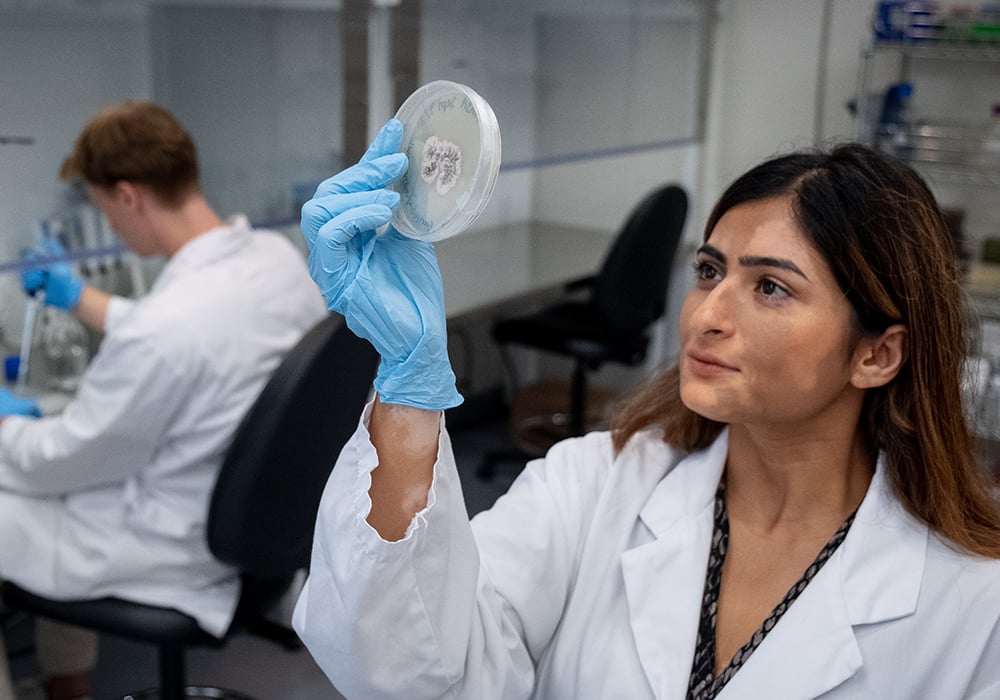Biologicals business Catalera receives funding boost

Glacier FarmMedia—A Vancouver company with ambitions of making biologicals “the future” of crop protection and pest solutions has secured investment from a major player in Canada’s agricultural industry.
On Tuesday morning, Catalera BioSolutions announced the close of its Series A funding round. S2G Ventures, a venture capital firm in Chicago, has invested US$8 million in Catalera.
FCC Capital, a newly created investment arm of Farm Credit Canada, has also put money into Catalera.
“FCC is thrilled to announce our first co-investment in Catalera BioSolutions alongside S2G, which has a decade of experience investing in the global food and agtech space,” FCC president Justine Hendricks said in a Sept. 10 news release.
Read Also

Canada’s Outdoor Farm Show kicks off 2024 event
The 2024 edition of Canada’s Outdoor Farm Show (COFS) kicked off near Woodstock this morning, with a celebration of agriculture.
“This transaction aligns with FCC’s commitment to build a capital solutions platform which delivers impactful financing for innovative companies with the potential to advance the Canadian food and agriculture industry.”
Catalera is a new entity in the world of biologicals, a generic term to describe crop protection and fertility products that are derived from bacteria, fungi, plant extracts and other natural organisms.
Terramera, an ag tech company in Vancouver, spun off part of its operations to create Catalera in May.
The new firm has several bio-pesticides already on the market in the United States and Mexico.
Those products include Socoro, a fungicide, insecticide and miticide for use on cereal crops, soybeans, cotton and other row crops in America.
“Our team has been developing safe, effective and cost-competitive biological products for over a decade. We have launched numerous products with leading partners and have an exciting pipeline of new products in development, which this new funding will help us get to market,” said Matthew Dahabieh, chief executive officer of Catalera.
Those products include a microbial bio-insecticide, which is expected to hit the market in 2026 and a combination bio-insecticide, which will be commercialized in 2025.
On its website, Catalera claims that synthetic chemistry has hit a wall in agriculture.
“Synthetics can take us no further. Biologicals are the future,” Catalera says.
“With no residual chemicals, biologicals overcome pesticide resistance and enable responsible pest control… Cost-effective and efficacious biological products satisfy growing demand from industry, regulators, and consumers.”
Some ag industry leaders would agree with that stance as they believe biologicals could replace chemistry in crop protection.
Others are more cautious, arguing that bio-stimulants, bio-fertilizers and bio-pesticides will have a role in agriculture, but it will likely be in combination with traditional chemistry.
“We have to measure our expectations on what these things can do, and not compare them to some of these herbicides or fungicides,” said Ryan Bonnet, Canadian commercial lead for biologicals at Corteva AgriScience.
“A herbicide or fungicide, they go out and kill a pest. They kill a weed or they kill a disease. … These products (biologicals) do something a little bit different.”
Speaking at this summer’s Ag In Motion farm show near Langham, Sask., Bonnett gave an example of what biological products can do.
If there was a light frost in the spring, a bio-stimulant could trigger the growth of the crop.
“There are (biostimulant) products you can use directly after that weather event to kick-start that crop’s growth stage,” he said.
“We want to tell the crop, no, no, no. It was just cold for a day. Let’s kick-start your photosynthetic ability. Let’s kick-start your normal hormonal processes.”
Whether they replace or complement synthetic chemistry, it’s likely that biologicals will soon play a much larger role on Canadian farms.
Major and minor crop science companies are investing billions into biological products. In 2022, for instance, Corteva Agriscience spent $1.2 billion to acquire Stoller, a biologicals firm from Texas.
Catalera, the new company from Vancouver, holds more than 200 patents and will launch new products over the next few years.
Now, there are about 1,200 biological products in the agricultural market and that number is guaranteed to increase.
Source: Farmtario.com

